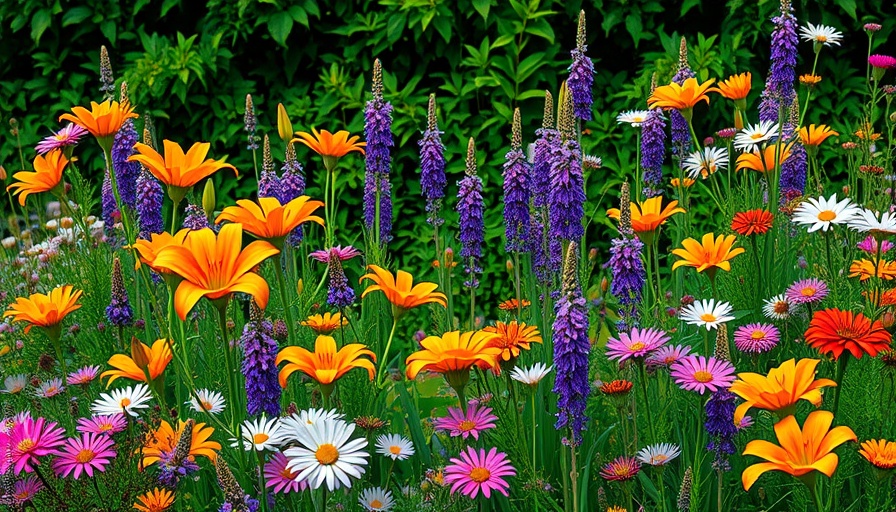
Discovering the Hidden World Beneath Our Feet
Soil is often perceived merely as dirt, a medium for planting and mowing. Yet, beneath our feet lies a vibrant ecosystem crucial for landscape health. The soil microbiome teems with trillions of microorganisms—bacteria, fungi, and protozoa—that play integral roles in plant growth and overall ecosystem health. This article will delve into how sustainable landscaping practices can enhance soil microbiomes, ensuring resilience and productivity in hospitality landscaping.
The Vital Role of Soil Microbiomes
The soil microbiome acts as the engine of the landscape, responsible for breaking down organic matter, enhancing nutrient availability, and promoting plant health. Microorganisms, such as nitrogen-fixing bacteria, directly contribute to the plant’s nutrition, transforming the way we approach landscaping. For boutique hospitality professionals, implementing practices that support this underground ecosystem can lead to lush, resilient gardens that impress guests.
Supporting Our Microbial Friends: Practical Strategies
One of the most effective ways to nourish your soil microbiome is through organic practices. This includes using organic fertilizers and avoiding synthetic chemicals that can disrupt the delicate balance of soil life. By applying compost, not only are you enriching the soil, but you’re also introducing beneficial microorganisms that help plants thrive. Consider using sustainable landscaping products such as compost mulches or organic fertilizers to foster a robust microbial community.
Embracing Nature’s Architects: The Role of Fungi
Fungi serve as nature's network architects, facilitating nutrient exchanges between plants and their environment. Mycorrhizal fungi, in particular, improve drought resistance by increasing plants' access to water and nutrients. As a hospitality professional, integrating fungi-friendly landscaping practices can prepare your landscape to withstand changing weather patterns while boosting the aesthetic appeal of your property.
Making Informed Choices: Eco-Friendly Solutions
Transitioning to eco-friendly irrigation systems not only conserves water but also promotes a strong soil microbiome. Consider drip irrigation technology that minimizes water loss and directs moisture right where it’s needed. This kind of system supports drought-resistant plants, creating a beautiful and sustainable landscape that requires less maintenance and is more resilient against climate variations.
Why Soil Health Matters for Hospitality Ventures
Investing in the health of your soil directly correlates with the vitality of your landscaping. A thriving microbiome not only enhances plant growth but also minimizes the need for chemical interventions, which can deter eco-conscious guests. Sustainable landscaping not only enriches the visual appeal of your property but also projects a commitment to eco-friendly practices that discerning travelers seek.
Understanding and supporting the soil microbiome creates a pathway for long-term sustainability in landscape management. By implementing organic and eco-friendly practices, boutique hospitality professionals can enhance biodiversity, promote resilience, and give guests a memorable encounter with nature.
Take Action for a Healthier Future
As a step toward enhancing your landscape's microbial health, consider conducting a soil test to assess the current conditions and tailor practices that best support your unique environment. With small but impactful changes, you can cultivate a thriving landscape that not only benefits the planet but also captivates your eco-conscious clientele.
 Add Row
Add Row  Add
Add 




Write A Comment